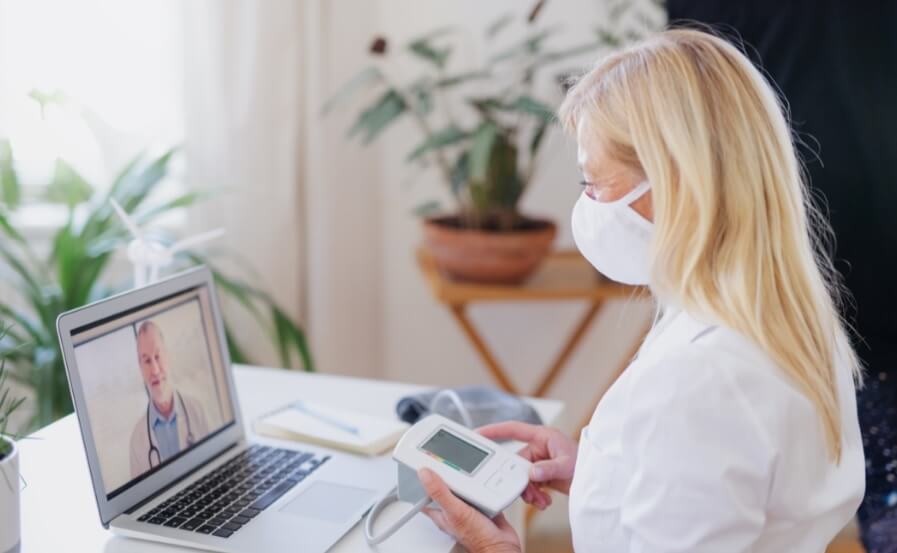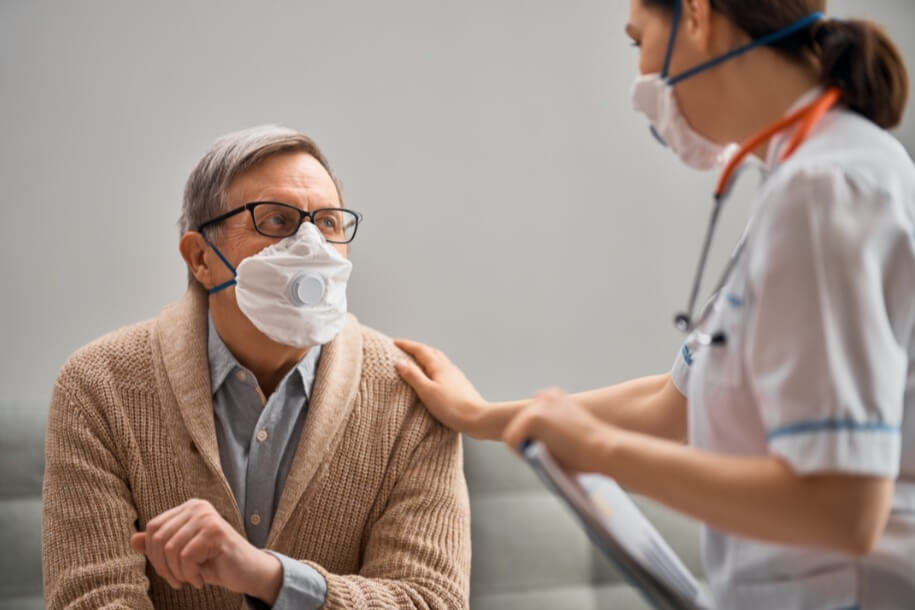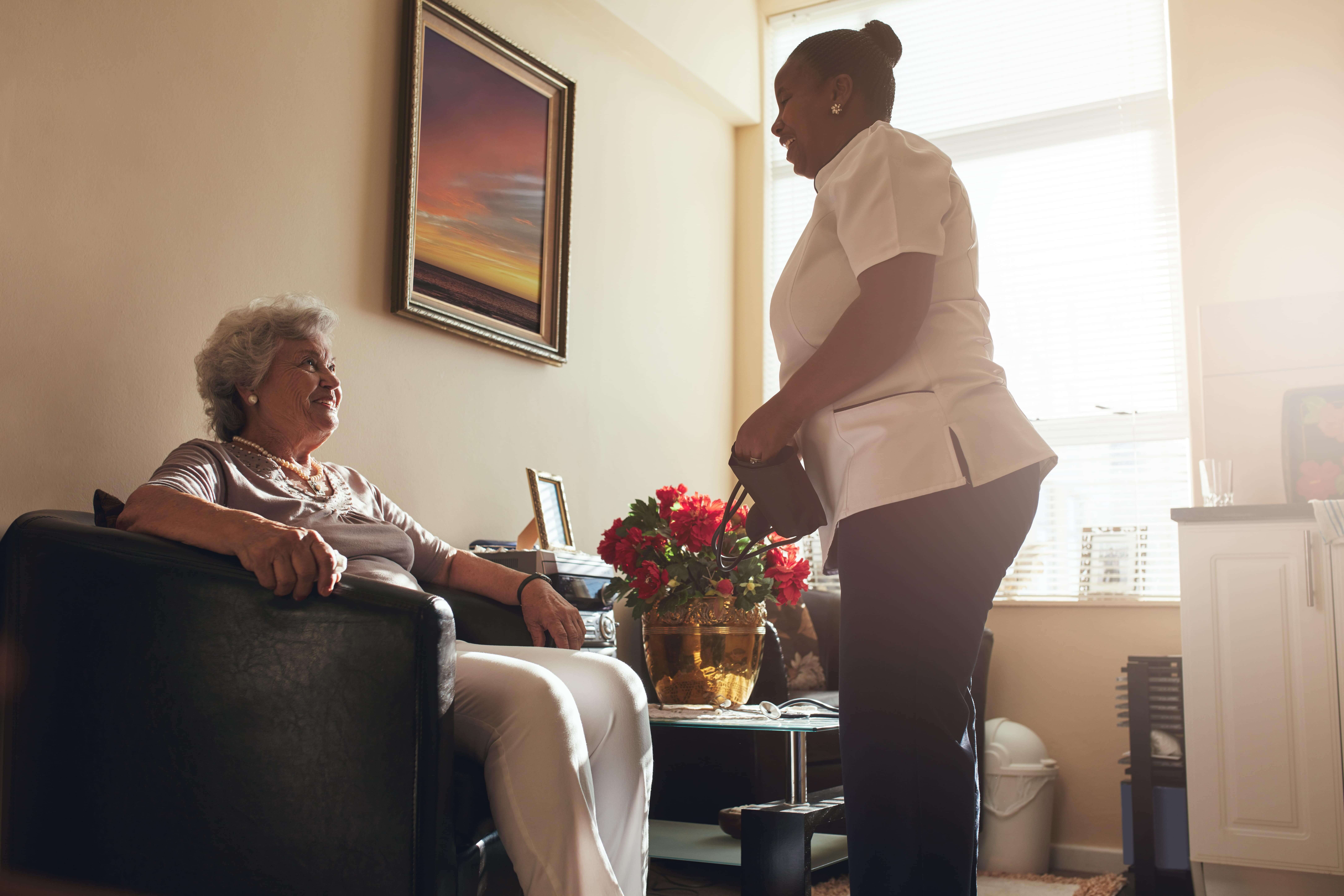If you are a senior or family member looking for COVID safety tips tailored to senior needs and lifestyle, you've found it. Today, we're talking about the top ten practical safety tips for seniors to combat the pandemic health risk.
The recent pandemic has everyone reconsidering personal safety in how we live our daily lives. One of the most widely known facts about COVID-19 is that the elderly are particularly at risk for displaying extreme and even potentially fatal symptoms if exposed to the virus. While most adults shake off mild cold symptoms, seniors are the most likely to develop pneumonia and other complications that put them in danger.
If you are a senior or have a senior in your life, it's time to take a few precautions. The good news is that we understand coronavirus transmission, so a few easy steps can be taken for seniors to protect themselves and those around them.
1. Wear a Mask When Others are Nearby
The first step is to get yourself a stack of washable cloth masks. The mask does two things.
1. Prevents your breath from going beyond the inner layer of the mask. This way, if you happen to be carrying the virus without symptoms, it can help prevent it from spreading to others.
2. Prevents your nose & mouth from being exposed to COVID-19 particles in the air. Likewise, a mask also helps us not to touch our faces after touching potentially contaminated items.
2. Wash Your Hands Frequently
Right now, personal virus safety is at peak priority. Take good care of yourself, especially when it comes to hand cleanliness. Start washing your hands several times a day, whenever you go by the sink. Wash with warm water and soap, lathering for at least 20 seconds before rinsing the soap away. We also advise keeping a bottle of lotion near where you wash your hands so that all that washing doesn't cause dry skin.
3. Clean Surfaces with a Sanitizing Solution Daily
Keep your home unusually clean, and especially focus on sanitizing surfaces. Even if a surface looks clean, it can contain fallen moisture from breathing or coughing. These fallen particles might include the virus. Sanitizing wipes or even just allowing Windex to stay on a surface for 30 seconds can sanitize anything. Make sure you have a strong enough cleaning solution and a quick, easy cleaning method. For seniors with home assistance, daily surface cleaning is something an in-home caregiver can help with. Looking for an in-home caregiver? Learn more about Personal Caregiving services.

4. Tele-Consult with Doctors and Postpone Unnecessary Appointments
Minimize errands and leaving the house. If you have appointments scheduled that are not necessary, postpone them for a later time. Consider contacting your doctors via Zoom or another online medium for a telehealth checkup instead of meeting in-person. Doctors are not only very busy during this crisis, but they are doing everything they can to limit patient exposure to the virus. Seniors, especially, should be careful about exposing themselves to healthcare facilities where COVID-19 might be present.
5. Find Local Delivery for Groceries and Medications
Going to the store is not safe right now, particularly for seniors who are the most at-risk. Instead, source your local delivery options. Instacart and Postmates, for example, are both services that focus on food delivery but can also arrange to pick up and deliver your essentials. Ordering home essentials can also be done through online shopping, such as Amazon. You can even get your prescriptions filled and delivered.

6. Ask Caregivers and Visitors to Wear Masks
Many seniors have in-home care or nearby family and cannot totally self-isolate. When there are other people in your home or you are out with others, make sure that everyone is wearing a mask. Offer guests one of your freshly laundered cloth masks so as to limit exposure in the home. Novelty masks are great in these circumstances, as you can give your guests a choice of their favorite color, pattern, or cartoon character to wear.
7. Wear Gloves and a Mask Outside the Home
When you leave the home, be careful, and wear your PPE (personal protection equipment). In this case, you will need to wear one of your stylish cloth masks and put on gloves. The gloves will prevent your hands from picking up any COVID-19 particles from public surfaces and the mask, naturally, protects your nose & mouth from airborne exposure.
8. Connect Through Video with Friends, Family, and Community
Health and home safety also include mental health. Isolating physically is easy; you just stay home and don't invite guests over. But isolating socially can be a difficult experience. Keep your connection to others active by meeting online. Chat through video conferences with the people you love and the people you like to see every day. Share some screen time with family and your dearest friends instead of meeting in-person to keep that sense of community alive.

9. Keep Distance & Wave to Neighbors When Out Walking
Another way to create that feeling of camaraderie and companionship is to wave to others from a distance. You can socialize in-person, as long as you don't socialize in each other's personal space. It's also safe to go for walks, provided you're wearing your PPE. So, when you see a neighbor tending their lawn or walking their dog on the other side of the street, feel free to smile and wave. We encourage it, as these little things help everyone feel less isolated during this pandemic.
10. Check-In with Someone Daily
Last but not least, make sure you talk to at least one other person every day. Even if you are independent and self-isolating for safety, trade a few words. If you have a caregiver or nurse who visits, they can be your one contact. Otherwise, reach out. Call a friend, send a text, or say hello across the fence to your neighbor. This will help you stay connected and just in case you need help in the home, someone will be waiting for your daily check-in and will know to provide assistance. COVID-19 poses a serious health risk to seniors, but only if you are exposed to situations that allow virus transmission. Being careful and keeping yourself healthy are essential for staying safe during this lockdown. If you are a senior during the pandemic and need safe, professional in-home care, we can help. Contact us today for any assistance or care you may need.


.jpg)